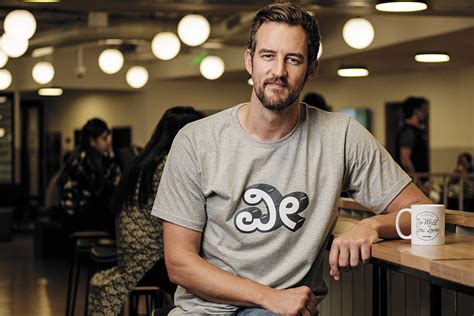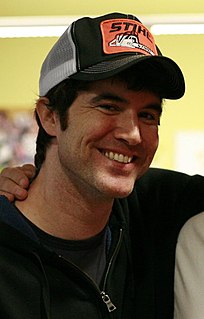A Quote by Andy Dunn
Most of the time, when you need something at a company, you make it. If you want to sell a product, you create it. If you need a head of marketing, you hire one. If you want to create a great company culture, what do you do? The lack of a clear answer on this is why I believe most companies don't have a great culture.
Related Quotes
The reality is the only place a company's culture is going to start and end is at the beginning of that company. And it always starts with the founders. So if you can't create an environment of founders and founding employees who are going to represent the company you want, then you are never going to get there. You have to look at your own network and find what you are missing. So if you don't have a female or someone who has an international perspective or a person with a bio degree, but those perspectives matter to the firm or product you want to create, then it's never going to work out.
I used to believe that you could change the culture or behavior of a company. I still believe it's possible, but it is at least a five to ten year process, if you are successful at all. More recently, I have been attracted to the ideas of the behavioralist, Edgar Schein. Schein has argued that you cannot change the culture of a company, but you can use the culture of a company to create change. It's an interesting approach to overcoming resistance. And if you can change how a company does its work, you might eventually be able to change how its people think.
I don't think you can create culture and develop core values during great times. I think it's when the company faces adversity of extraordinary proportions, when there's no reason for the company to survive, when you're looking at incredible odds - that's when culture is developed, character is developed.
The only reason I was able to accomplish things is the great people willing to work with me. A company is a group of people organized to create a product or service, and that product or service is only as good as the people in the company - and how excited they are about creating it. I do want to recognize a ton of super-talented people. Without them, I would have accomplished very little. I just happen to be the face of the companies.
All companies have a culture, some companies have discipline, but few companies have a culture of discipline. When you have disciplined people, you don't need hierarchy. When you have disciplined thought, you don't need bureaucracy. When you have disciplined action, you don' t need excessive controls. When you combine a culture of discipline with an ethic of entrepreneurship, you get the magical alchemy of great performance.
When you're in a start-up, the first ten people will determine whether the company succeeds or not. Each is 10 percent of the company. So why wouldn't you take as much time as necessary to find all the A players? If three were not so great, why would you want a company where 30 percent of your people are not so great? A small company depends on great people much more than a big company does.
Startups need to focus on building a foundation for their company culture early, and then they need to revisit it often. Every time a hire is made, a feature is launched, a Facebook status is updated, a press interview is given, a round of financing is raised, or a meeting is held, culture should be part of the decision-making process.
I have my own theory about why decline happens at companies like IBM or Microsoft. The company does a great job, innovates and becomes a monopoly or close to it in some field, and then the quality of the product becomes less important. The company starts valuing the great salesmen, because they’re the ones who can move the needle on revenues, not the product engineers and designers. So the salespeople end up running the company.
Not only do you need great lyrics, a great message, a great story, great vocals, great chords... you also need great instrumentation, great editing, great sonics, great mixing, and great mastering. It all comes together to make something truly great, and I think each element combines together to create a powerful impact on the consumer.
I often hear that it's unfair that athletes should make what they make versus teachers, because who's more important. But that's not how the market works. Markets don't sign things. You know what you're worth is what somebody will pay you. It's not some arbitrary - the purpose of a company is not to create jobs and health care. That's not why they exist. And it's not to create fairness or any of that. That's not why people form businesses and try to sell a service or a product.
One of the great strengths of American culture is this empowerment of individual, is the individual being able to be entrepreneurial, create new things. But you create a whole group of people to make great companies. It's employees and investors and customers and partners. The fabric of society, of a network of relations, is key to being successful.

































